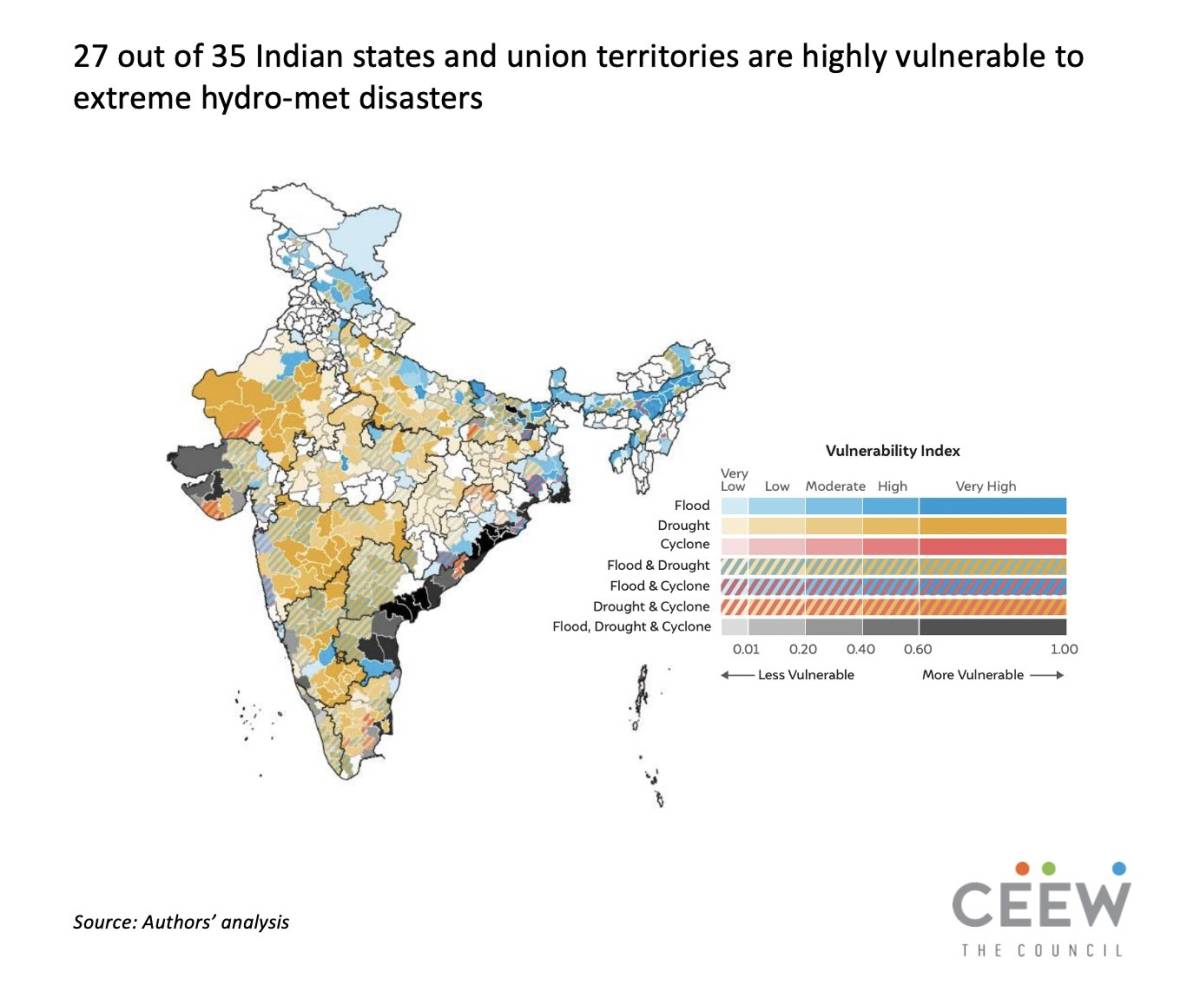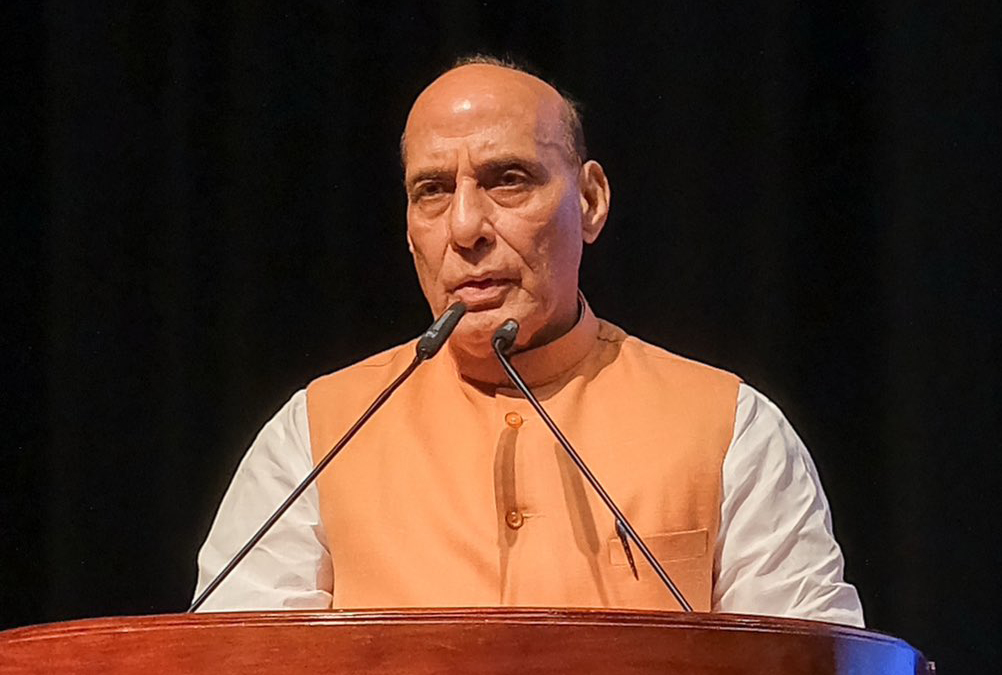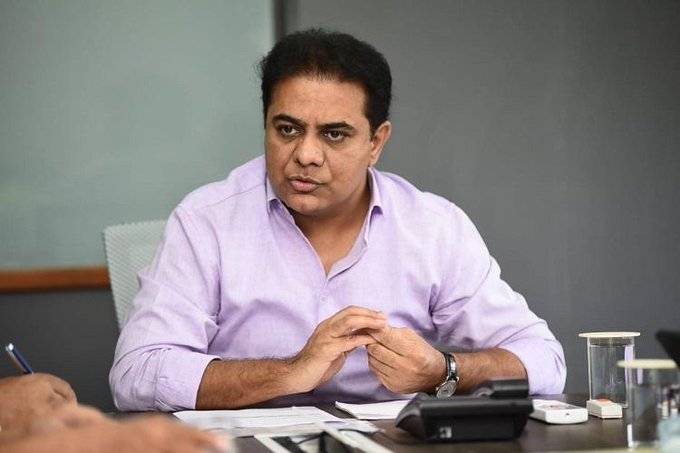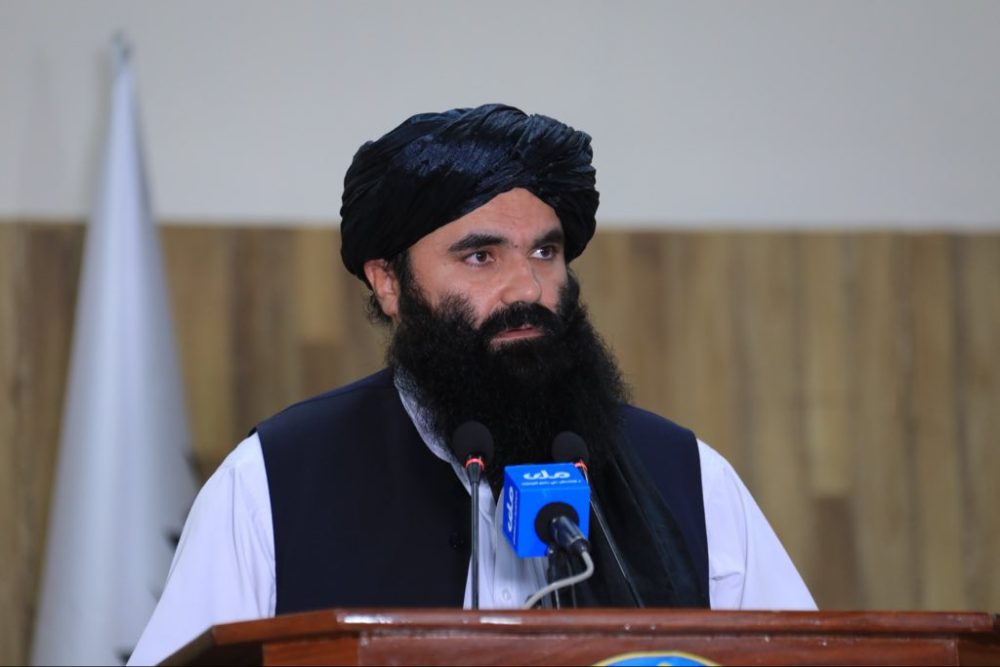Overall, 27 Indian states and Union Territories are vulnerable to extreme climate events, which often disrupt the local economy and displace weaker communities….reports Asian Lite News
Assam, Andhra Pradesh, Maharashtra, Karnataka, and Bihar are most vulnerable to extreme climate events such as floods, droughts, and cyclones in India, according to a first of its kind Climate Vulnerability Index released on Tuesday by the Council on Energy, Environment and Water (CEEW).
Overall, 27 Indian states and Union Territories are vulnerable to extreme climate events, which often disrupt the local economy and displace weaker communities. A total of 463 out of 640 districts in India – where more than 80 per cent Indians live – are vulnerable to extreme floods, droughts, and cyclones.
More than 45 per cent of these districts have undergone unsustainable landscape and infrastructure changes. Further, 183 hotspot districts are highly vulnerable to more than one extreme climate event, the CEEW study found out and also that more than 60 per cent of Indian districts have medium to low adaptive capacity.
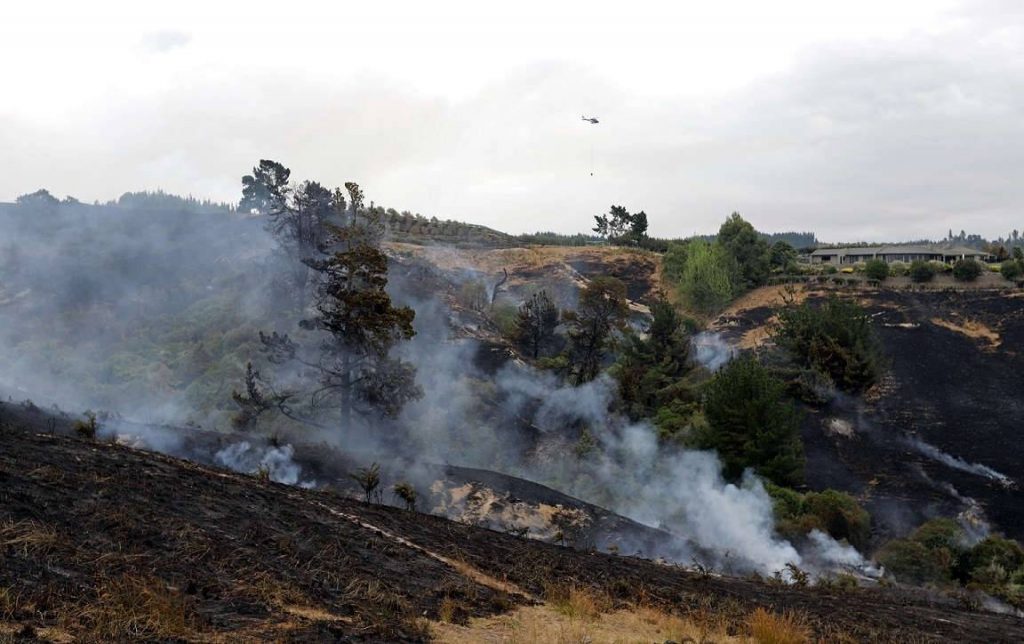
Dhemaji and Nagaon in Assam, Khammam in Telangana, Gajapati in Odisha, Vizianagaram in Andhra Pradesh, Sangli in Maharashtra, and Chennai in Tamil Nadu are among India’s most climate vulnerable districts.
The study is an important documentation in view of the annual climate change conference – COP26 – to be held at the UK’s Glasgow from October 31. Developing countries such as India are expected to demand at the COP that developed countries ramp up and deliver climate finance timely to help the former strengthen adaptation mechanisms against extreme climate events.
Programme Lead, CEEW, and lead author of the study, Abinash Mohanty said: “The frequency and intensity of extreme climate events in India have increased by almost 200 per cent since 2005. Our policymakers, industry leaders and citizens must use the district-level analysis to make effective risk-informed decisions.”
“Climate-proofing of physical and ecosystem infrastructures should also now become a national imperative. With loss and damage rising exponentially due to the climate crisis, India must demand climate finance for adaptation-based climate actions at COP26,” he said.
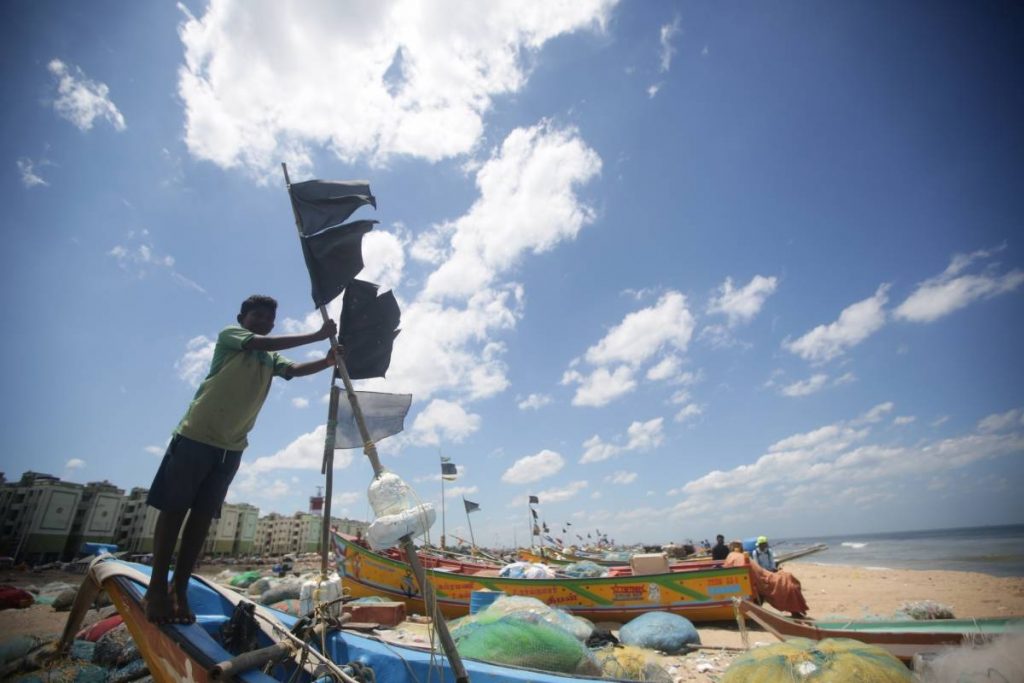
CEEW CEO, Arunabha Ghosh, said: “Combating the rising frequency and scale of extreme climate events is fiscally draining for developing countries such as India. At COP26, developed countries must regain trust by delivering the USD 100 billion promised in 2009 and commit to stepping up climate finance over the coming decade.”
The CEEW study, supported by the India Climate Collaborative and Edelgive Foundation, also highlighted that the states in India’s northeast are more vulnerable to floods, while the ones in the south and central are most vulnerable to extreme droughts. Further, 59 per cent and 41 per cent of the total districts in the eastern and western states, respectively, are highly vulnerable to extreme cyclones.
The CEEW study also indicated that only 63 per cent of Indian districts have a District Disaster Management Plan (DDMP). While these plans need to be updated every year, only 32 per cent of them had updated plans until 2019. Highly vulnerable, states like Maharashtra, Tamil Nadu, Odisha, Karnataka, and Gujarat have improved their respective DDMPs and climate-proofed critical infrastructures in the recent years.


